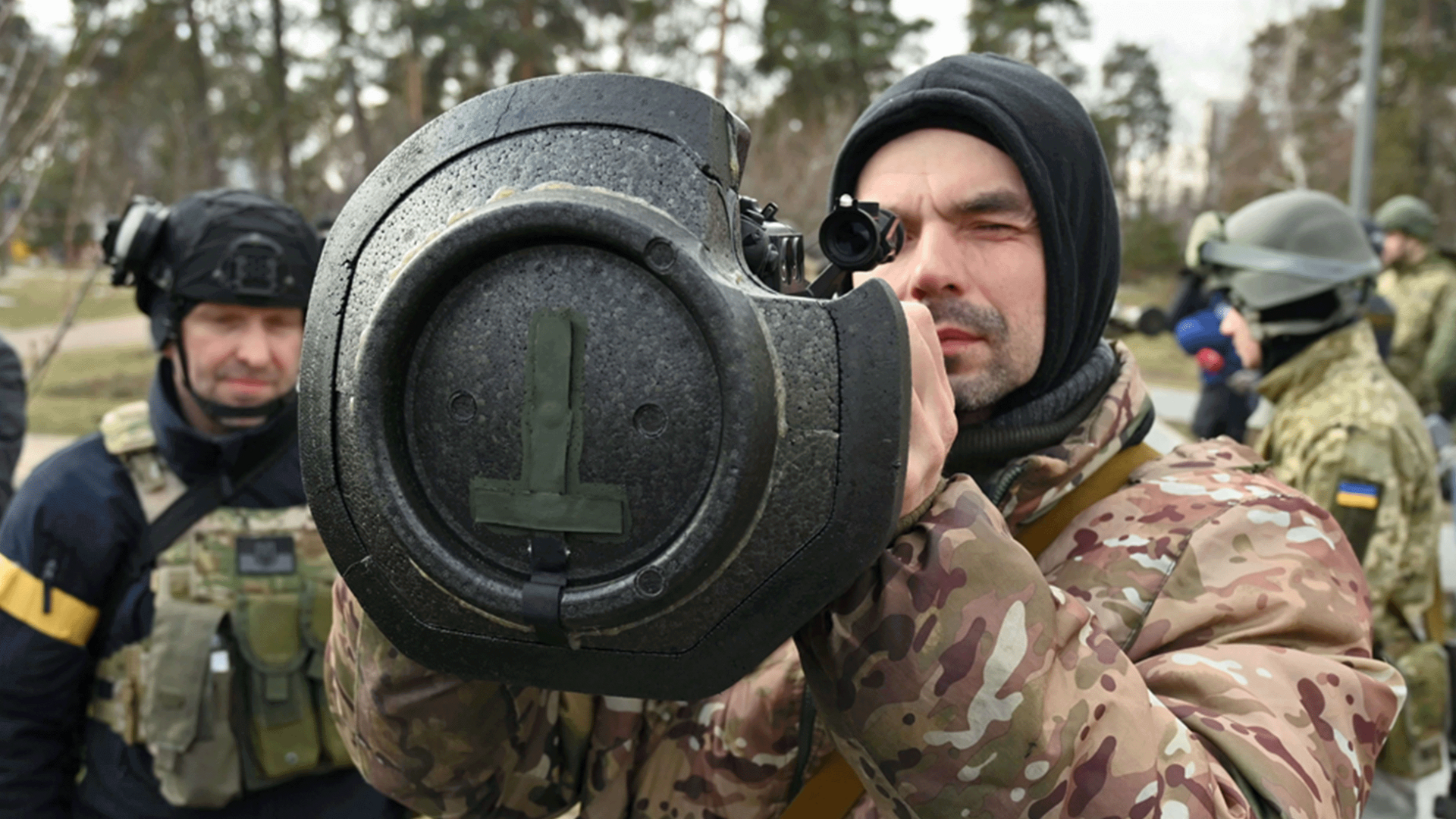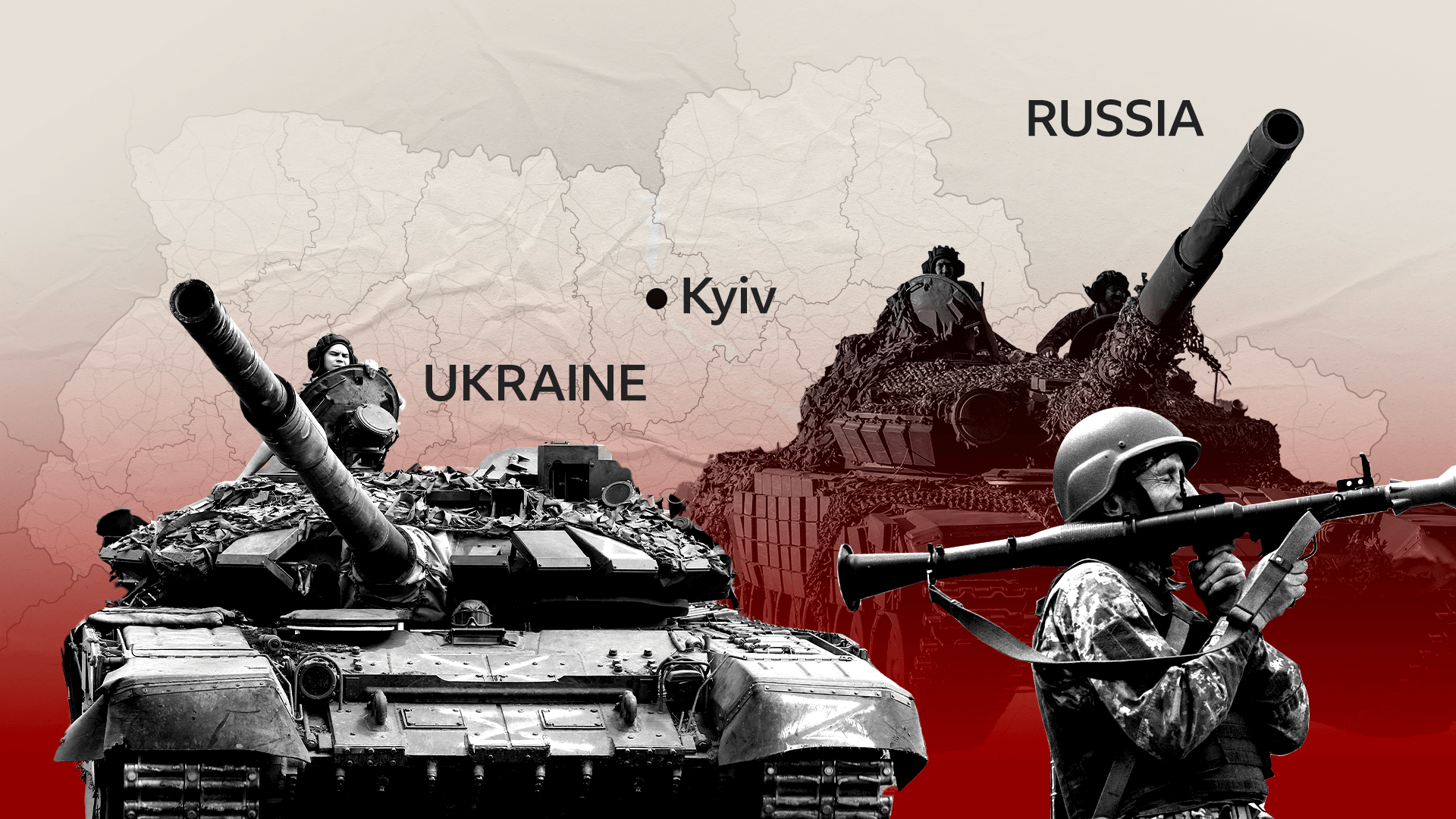Ukraine round-up: Long-range rockets and Kherson torture claims
- Published

A Himars rocket is fired during US military training in California in 2019
Russia has accused the US of intentionally prolonging the war in Ukraine after President Joe Biden announced that his administration would supply Kyiv with new long-range missiles in the coming weeks.
Writing in the New York Times, Mr Biden said the lethal aid would strengthen Ukraine's negotiating position against Russia and make a diplomatic solution more likely.
But Kremlin spokesperson Dmitry Peskov accused the US of aiming to "fight Russia to the last Ukrainian" and said the move discouraged officials in Kyiv from seeking a compromise to end the conflict.
President Biden said the weapons, which Ukraine has long asked for, are to help strike enemy forces within Ukraine more precisely and from a longer distance.
US Secretary of State Antony Blinken said Ukraine had promised not to use the new missiles to strike inside Russia, and warned of a long conflict ahead.
The intervention comes as fighting intensifies in the eastern Donbas region, where Russia has been accused of "madness" by President Volodymyr Zelensky after striking a chemical factory in the city.

Kidnapped and beaten
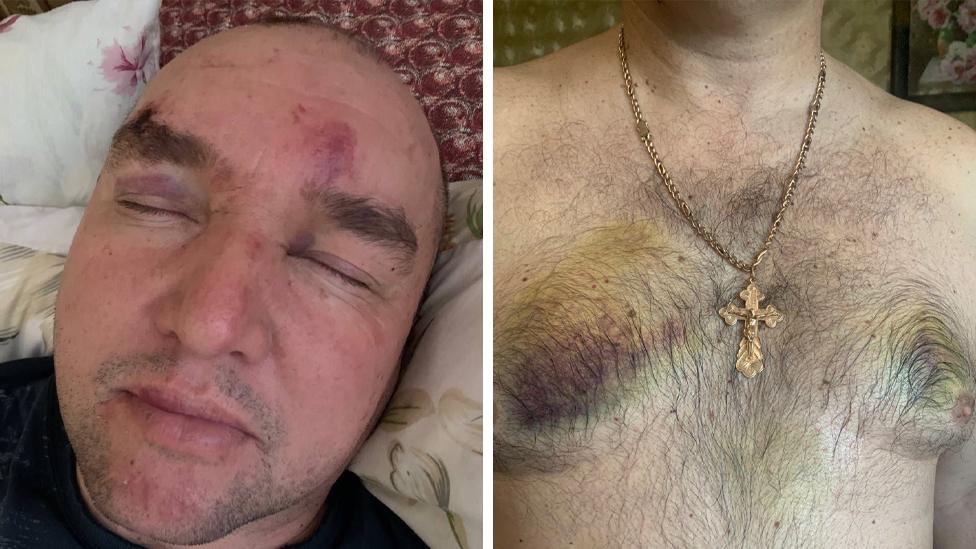
Olexander took pictures of his bruises after being released by Russian authorities
More graphic accounts of torture have emerged from Ukraine at the hands of Russian soldiers - this time from Kherson in the south of the country.
An unnamed doctor describes signs of "body mutilation" providing a list that includes cuts and burns, electrocution, binding and strangulation.
One man, Olexander, says a bag was put on his head and rope was tied around his neck and wrists. He says he was then beaten and threatened.
The BBC's Caroline Davies has heard multiple first-hand testimonies saying that people began to disappear when Russian troops took control of Kherson.

Your questions about the war answered
Earlier, three of our correspondents spent some time answering questions sent in by members of the public about the war.
Life away from the front line can seem relatively normal, says BBC Eastern Europe Correspondent Sarah Rainsford. But she describes the whole of Ukraine as sitting on "a fear spectrum" with some civilians being scared into leaving the country.
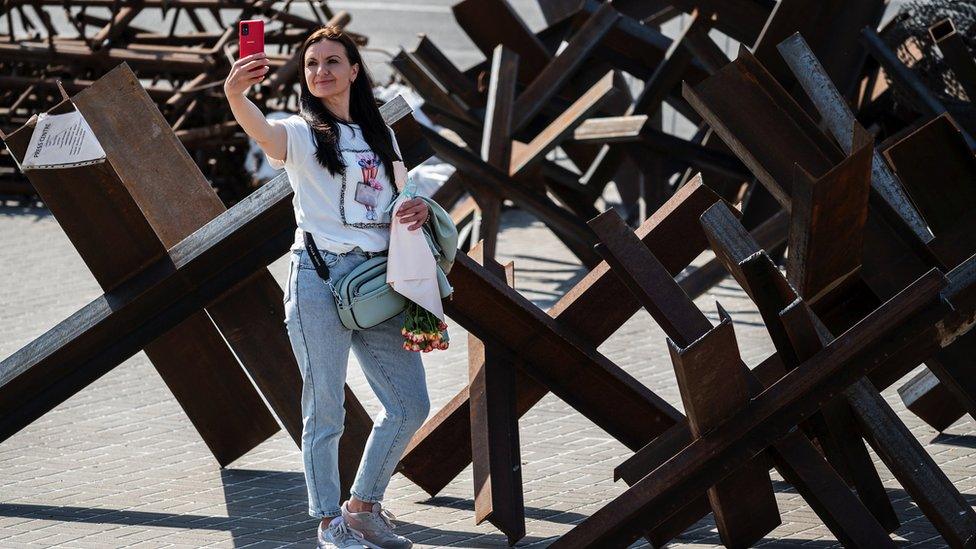
The new normal: A woman takes a selfie by anti-tank barricades in Kyiv
Peace talks aren't a likely option right now, says the BBC's Russia editor, Steve Rosenberg. He told a reader talking is over between both sides and each blame each other - and developments on the battlefield will dictate what happens next with negotiations. Turkey offered to be a mediator, but the offer hasn't been accepted yet.
Have more questions? Maybe they've been answered by our correspondents here.

Investigators look into alleged Russian war crimes
Since Russia launched its invasion of Ukraine on 24 February, nearly 15,000 allegations of war crimes have been made against Moscow's forces by Ukrainian civilians and troops.
War crimes include the use of weapons that cause indiscriminate or appalling suffering, genocide and the abuse of the rights of prisoners of war.
Kyiv's top prosecutor, Iryna Venediktova, says the pace of new allegations has intensified, with 200 to 300 cases being reported every day.
Now, in the bombed-out apartment blocks of Ukraine's second city, Kharkiv, investigators are searching for evidence that could help them prosecute Russia's war criminals.
Watch: Ukraine investigates alleged Russian war crimes

Football chants for good
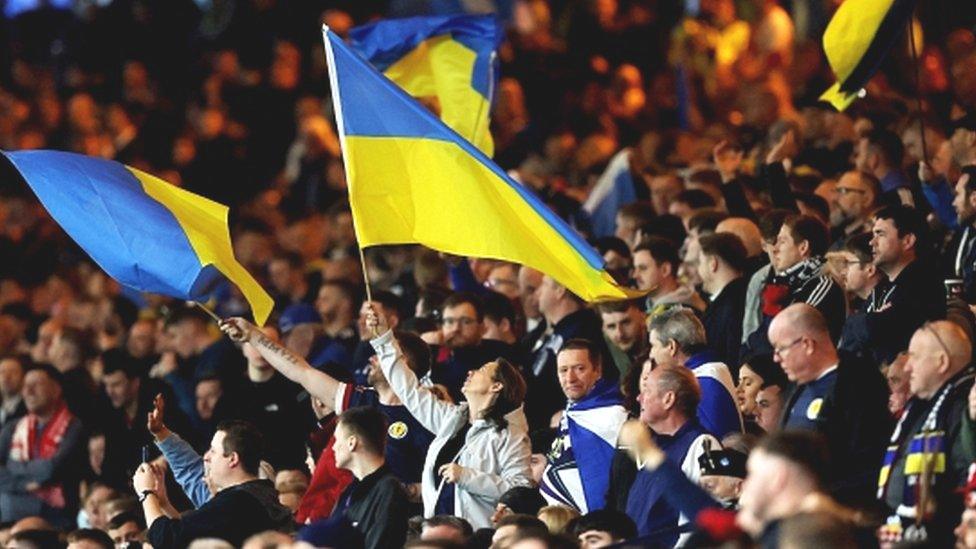
Scotland fans waved flags in support of Ukraine at their recent friendly against Poland
Football chants aren't usually done to show support for the opposition. But at tonight's World Cup play-off, Scottish fans were asked to join in singing the Ukrainian anthem in solidarity with the war-torn country.
Flyers containing a phonetic version of the song were handed out to spectators at Hampden Park in Glasgow.
The match is Ukraine's first competitive game since the start of the Russian invasion back in February.
Scotland's national pipers have also been learning the Ukrainian national anthem to make the thousands of visiting fans feel welcome.
- Published29 May 2022
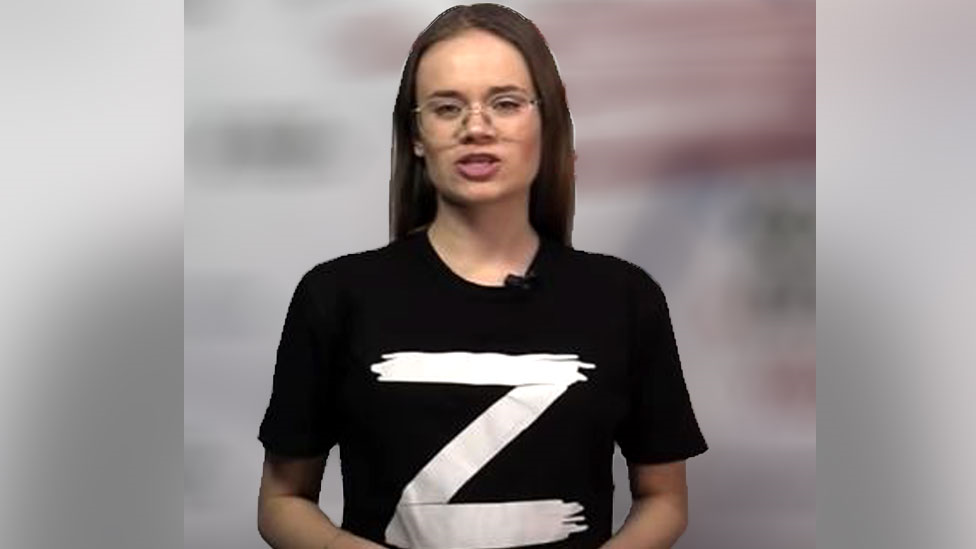
- Published15 May 2023
